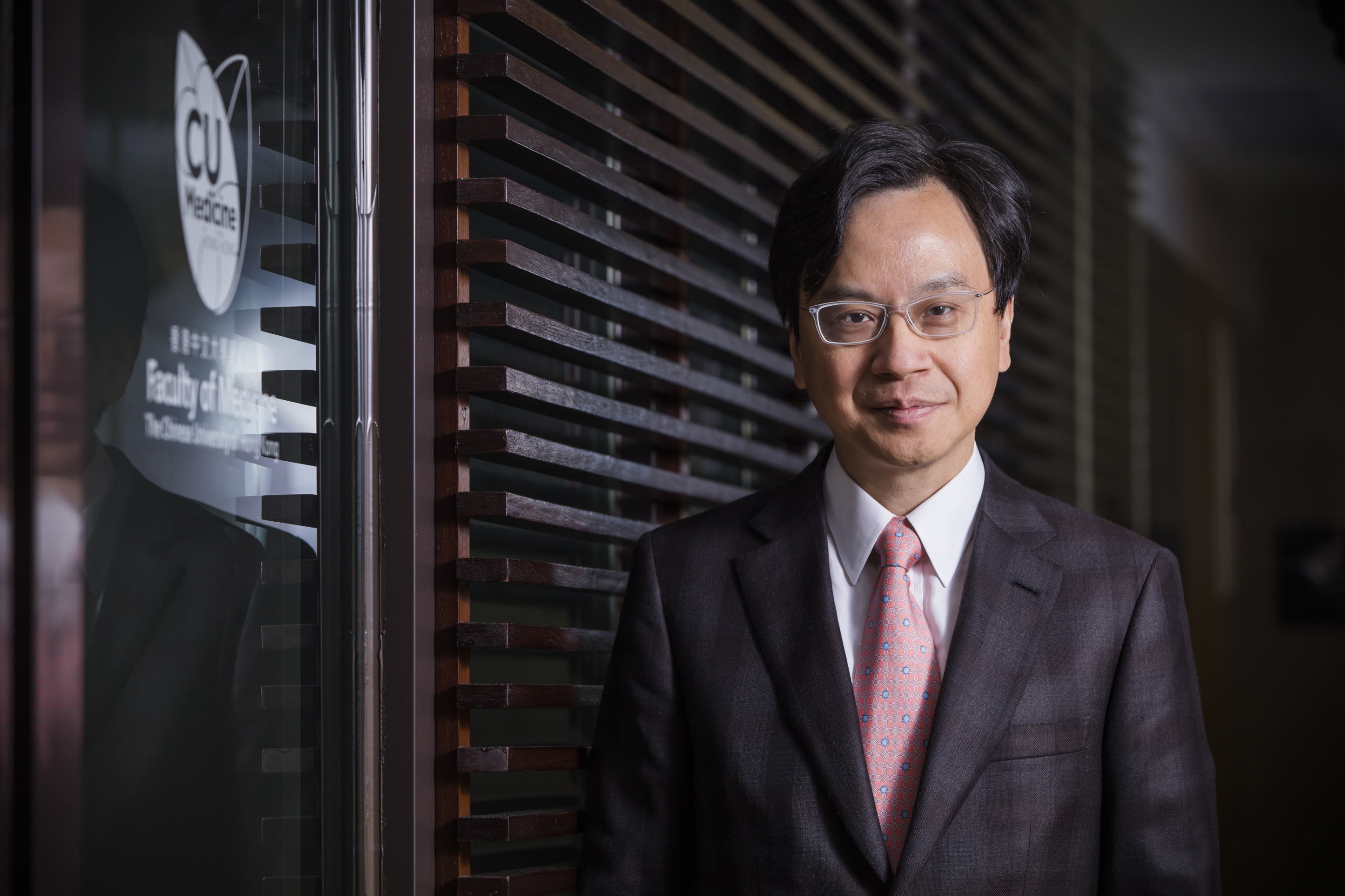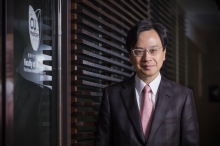CUHK
News Centre
CUHK Professor Dennis Lo Named ‘Thomson Reuters Citation Laureate’, an Honour Considered as an Index to Predict Nobel Prize Winners
Prof. Dennis Yuk-ming LO from the Faculty of Medicine at The Chinese University of Hong Kong (CUHK) has been named this year’s ‘Thomson Reuters Citation Laureate – Chemistry’ for his achievement in detecting cell-free fetal DNA in maternal plasma, cited as a revolution in non-invasive prenatal testing. The honour came two days after he clinched the Future Science Prize – Life Science Prize, seen as China’s Nobel Prize, for the same contribution. The annual Citation Laueates study, launched by the Intellectual Property and Science arm of Thomson Reuters, identifies the most influential science researchers who are considered as potential winners of the Nobel Prize in the near future.
According to scientific research citation data on the platform Web of ScienceTM, 14 research papers that Prof. LO published on non-invasive prenatal diagnosis have been cited over 6,000 times since 1997. He ranks in the top 0.1% by citations in his research area worldwide in the same database. His paper1 published on Lancet in 1997 alone has been cited over 1,000 times.
Intellectual Property and Science Business of Thomson Reuters believes the higher the number of citations of a research paper, the greater the significance of the study, and resulting in a higher chance of obtaining an honour such as a Nobel Prize.
In regard to the honours received on non-invasive prenatal testing, Prof. LO expressed his gratitude, ‘On behalf of my team, I would like to express our sincere appreciation of the recognitions of our research. We shall continue to strive to push forward the field of molecular diagnosis. We hope to further enhance the accuracy and broaden the applications of non-invasive prenatal testing and cancer detection.’
Prof. LO is the Associate Dean (Research) of the Faculty of Medicine at CUHK, Chairman of the Department of Chemical Pathology and Director of the Li Ka Shing Institute of Health Sciences. Joined CUHK in 1997, he discovered the presence of cell-free fetal DNA in maternal plasma in the same year. He and his colleagues are instrumental in making non-invasive DNA-based prenatal testing a clinical reality. His team has developed a Down syndrome test that has been adopted in over 90 countries and has been used by millions of pregnant women. With the use of massively parallel sequencing and the development of novel bioinformatics strategies, Prof. Lo’s group succeeded in deciphering the world’s first non-invasive fetal genome. These scientific achievements have laid the foundation for developing non-invasive prenatal diagnostic tests for multiple genetic diseases. Prof. Lo is now applying a similar approach to develop novel screening tests for multiple types of cancers.
In recognition of his work, Prof. LO has received numerous awards, including the 2005 State Natural Science Award from the State Council of China, the 2006 International Federation of Clinical Chemistry and Laboratory Medicine (IFCC) – Abbott Award for Outstanding Contribution to Molecular Diagnostics, the 2006 US National Academy of Clinical Biochemistry Distinguished Scientist Award, the 2006 Croucher Senior Medical Research Fellowship, the 2007 AACC Sigi Ziering Award, the 2012 AACC-NACB Award for Outstanding Contributions To Clinical Chemistry in a Selected Area of Research, Fulbright Distinguished Scholar 2009 and the 2014 King Faisal International Prize for Medicine. He was elected as a Fellow of the Royal Society in 2011, as a Foreign Associate of the US National Academy of Sciences in 2013 and as a Founding Member of the Academy of Sciences of Hong Kong. Last year, he became the First Chinese Honoured with AACC Wallace H. Coulter Lectureship Award. A couple of days ago he was presented the Future Science Prize – Life Science Prize, regarded by many as the Chinese version of a Nobel Prize.
About Thomson Reuters Citation Laureates
Since the year 2002, the annual Citation Laureates, organised by Thomson Reuters, uses scientific citation data to predict Nobel Prize honorees. The approach mines scientific research citations within their global search and discovery platform Web of ScienceTM, and identifies highly cited papersto identify the most influential researchers in chemistry, physics, physiology or medicine, and economics. For detailed information, visit StateOfInnovation.com.
1Lo, Y. M. D., et al. (1997). Presence of fetal DNA in maternal plasma and serum. Lancet, 350(9076), 485-487.



